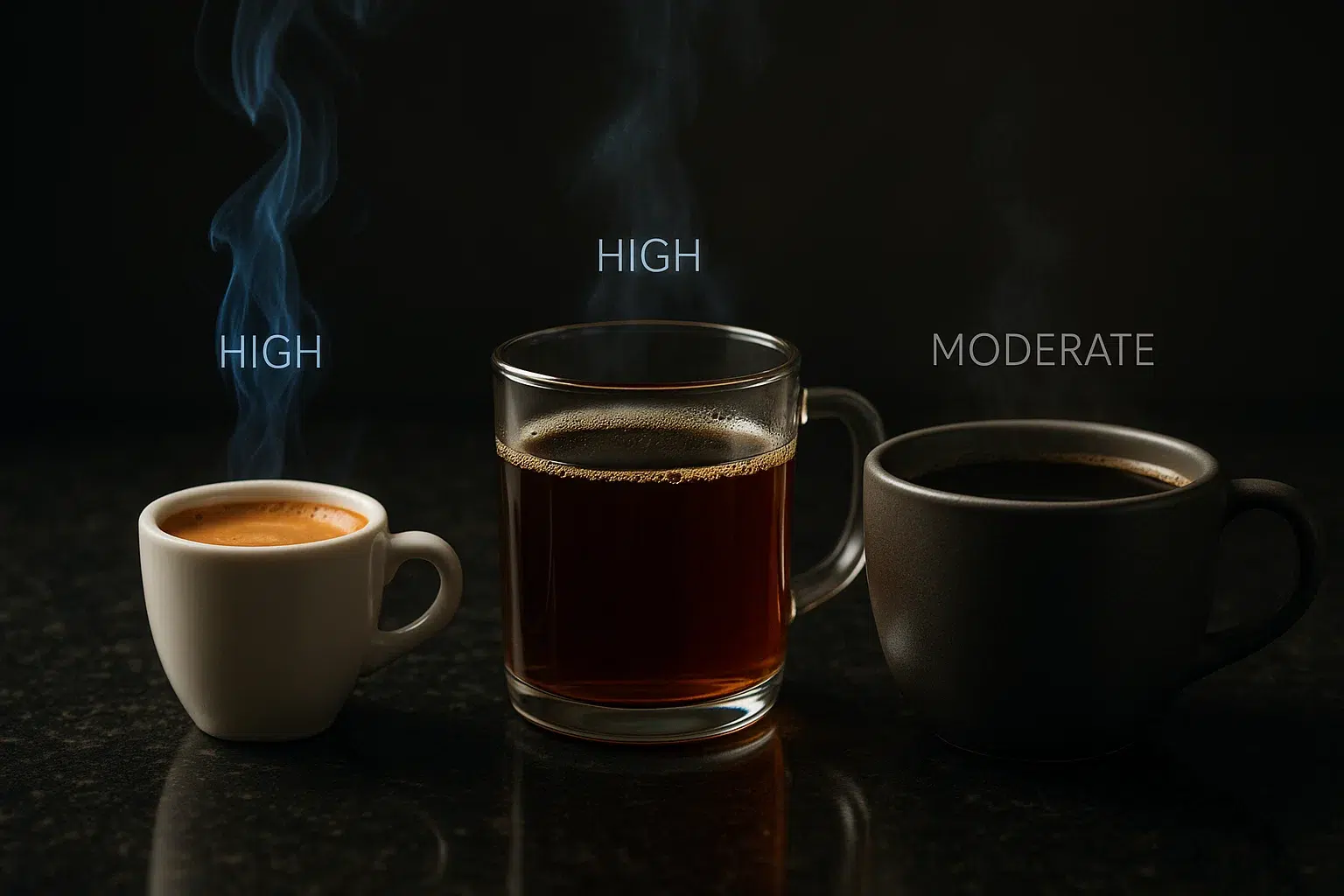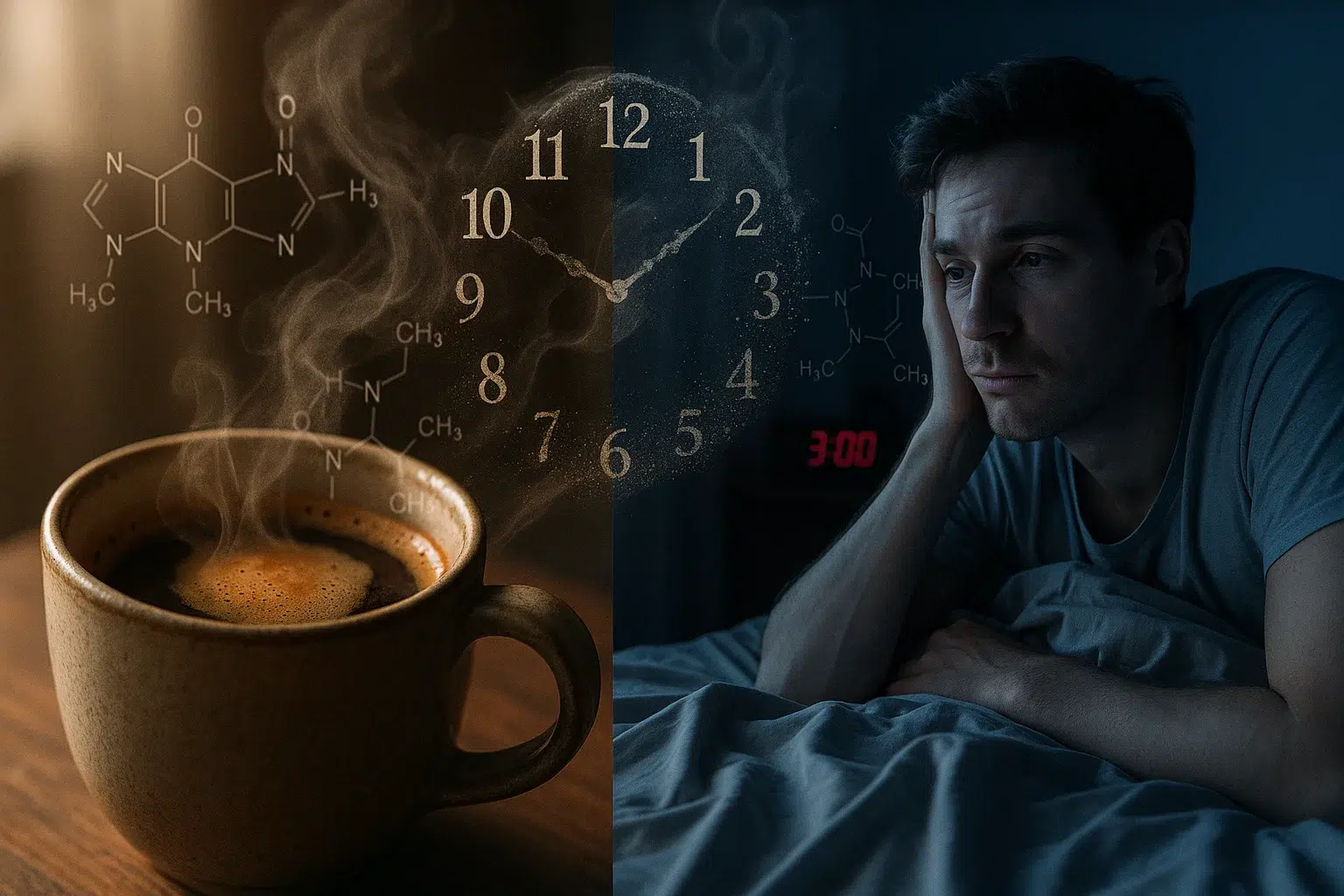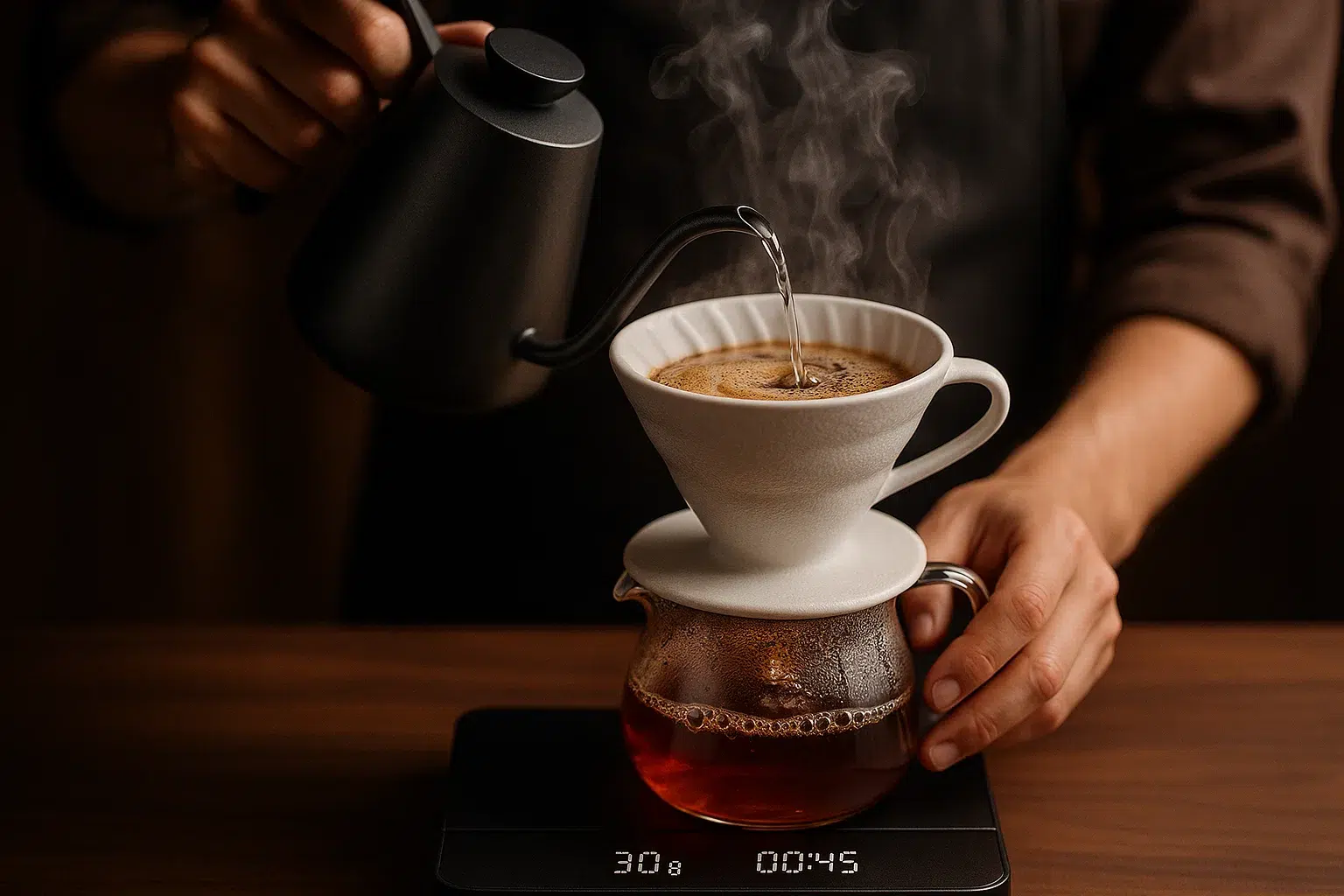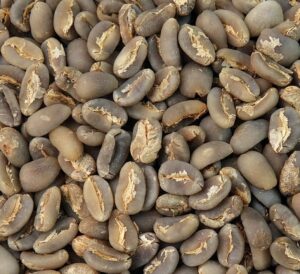Coffee is one of the most popular beverages worldwide, cherished for its rich flavor and energizing effects. At the heart of this beloved drink lies caffeine, a natural stimulant that helps millions of people kickstart their day. But how much coffee caffeine is too much?
Understanding the balance between enjoying your daily cup and overconsumption is crucial for maintaining your health and well-being. In this FnB Coffee’s article, we’ll explore safe consumption levels, factors that influence coffee caffeine levels, and tips for enjoying your brew responsibly.
What Is Caffeine, and How Does It Work?

Caffeine is a naturally occurring compound found in coffee beans, tea leaves, cacao, and other plants. It stimulates the central nervous system, helping you feel more alert and focused.
When consumed in moderation, caffeine can enhance cognitive performance, improve mood, and even boost physical endurance. However, excessive intake can lead to negative side effects like jitteriness, insomnia, and increased heart rate.
The key to reaping the benefits of coffee caffeine lies in understanding your limits and how your body responds to it.
Read also: How Much Caffeine in Decaffeinated Coffee?
Recommended Daily Limits for Coffee Caffeine
According to health experts, most healthy adults can safely consume up to 400 milligrams of caffeine per day. This is roughly equivalent to:
- 4 cups of brewed coffee (8 ounces each)
- 2 shots of espresso (1 ounce each)
- 5 cups of black tea (8 ounces each)
The amount of caffeine in coffee can vary depending on the type of coffee, preparation method, and serving size. However, individual tolerance levels can vary based on factors like age, weight, metabolism, and sensitivity to caffeine.
Pregnant women, individuals with certain medical conditions, and those taking specific medications may need to limit their intake further.
Factors That Influence Coffee Caffeine Levels

Not all cups of coffee are created equal. The caffeine content in your brew can vary significantly depending on several factors:
1. Type of Coffee Bean
Different coffee beans contain varying amounts of caffeine. For example, Robusta beans typically have almost double the caffeine content of Arabica beans.
2. Brewing Method
The way you prepare your coffee can greatly affect its caffeine levels. Espresso, for instance, is more concentrated than drip coffee, but serving sizes are smaller. Cold brew, on the other hand, often has higher caffeine levels due to its extended steeping time.
3. Serving Size
A standard cup of coffee is usually 8 ounces, but many coffee shops serve larger portions. A 16-ounce latte, for example, will contain more caffeine than a single shot of espresso.
4. Roast Level
Contrary to popular belief, darker roasts don’t necessarily have more caffeine. While the roasting process affects flavor, it has minimal impact on caffeine content.
Signs You’re Consuming Too Much Coffee Caffeine
While moderate caffeine consumption is generally safe, exceeding your limit can lead to unpleasant side effects. One key factor to consider is the amount of caffeine in coffee, which varies depending on the type of coffee and how it’s brewed.
Consuming too much can cause the following signs that you may be overdoing it:
- Jitters and Restlessness: Feeling shaky or unable to sit still is a common indicator of excessive caffeine.
- Insomnia: Caffeine can stay in your system for up to 6 hours, making it harder to fall asleep if consumed late in the day.
- Increased Heart Rate: High doses of caffeine can cause palpitations or a racing heart.
- Digestive Issues: Too much caffeine may lead to stomach discomfort or acid reflux.
- Anxiety: Caffeine can exacerbate feelings of nervousness or anxiety in sensitive individuals.
Tips for Safe Coffee Caffeine Consumption
To enjoy your coffee without overdoing it, follow these practical tips:
1. Monitor Your Intake
Keep track of how much caffeine you’re consuming each day. Remember that caffeine is also found in tea, energy drinks, chocolate, and some medications.
2. Choose Lower-Caffeine Options
If you’re sensitive to caffeine, opt for decaffeinated coffee or blends with lower coffee caffeine levels.
3. Time Your Consumption
Avoid drinking coffee late in the afternoon or evening to prevent sleep disturbances.
4. Stay Hydrated
Caffeine is a diuretic, so make sure to drink plenty of water throughout the day to stay hydrated.
5. Listen to Your Body
Pay attention to how your body reacts to caffeine. If you notice negative effects, reduce your intake or switch to a milder alternative.
Read also: What is Powder Coffee and How to Use It
How Coffee Caffeine Affects Your Mental and Physical Performance
Coffee caffeine is widely recognized for its ability to boost energy levels and enhance mental and physical performance. As a stimulant, caffeine works by stimulating the central nervous system, leading to increased alertness and focus.
This makes coffee a go-to drink for individuals who need to kickstart their day, stay productive, or push through mental fatigue.
1. Focus and Alertness
Caffeine, the active compound in coffee, has a direct impact on cognitive function. When consumed, caffeine blocks adenosine receptors in the brain, which are responsible for promoting sleep and relaxation. By doing so, it increases the levels of neurotransmitters like dopamine and norepinephrine, which are involved in mood regulation, focus, and attention.
This action leads to improved alertness, making it easier to concentrate on tasks that require mental effort. Studies have shown that caffeine can enhance tasks involving memory, problem-solving, and even creativity, making it a popular choice for individuals who need to stay mentally sharp.
2. Endurance and Strength
Beyond its mental benefits, coffee caffeine can also improve physical performance. Caffeine increases the release of adrenaline, the “fight-or-flight” hormone, which prepares the body for intense physical activity. This leads to improved endurance and strength during exercises, making it a common pre-workout drink.
Caffeine has been shown to reduce the perception of effort, meaning that activities like running, cycling, or weightlifting can feel less strenuous. It also helps in mobilizing fatty acids from fat tissues, providing an energy boost that supports prolonged physical exertion. This is why many athletes and fitness enthusiasts turn to coffee as a natural performance enhancer.
3. Impact on Daily Tasks
The effect of coffee caffeine on mental and physical performance can be seen throughout the day, whether you’re working, exercising, or engaging in other daily activities. However, it is important to consume caffeine in moderation.
While a cup of coffee in the morning can enhance productivity and focus, excessive caffeine intake can lead to restlessness, jitteriness, and even disrupt your sleep patterns.
The Impact of Coffee Caffeine on Sleep Quality

Consuming coffee too close to bedtime can significantly disrupt sleep quality. Caffeine, the primary active compound in coffee, blocks adenosine receptors in the brain, which are responsible for promoting sleepiness. This interference can delay sleep onset, reduce total sleep time, and diminish sleep quality.
Quoted from sleepeducation.org that consuming caffeine even six hours before bedtime can lead to a reduction in total sleep time by approximately one hour. This effect is particularly pronounced in older adults, who may metabolize caffeine more slowly, making them more susceptible to its sleep-disrupting effects.
To mitigate these adverse effects, it’s advisable to avoid consuming caffeine-containing beverages like coffee at least six hours before bedtime. This practice helps ensure that caffeine has been metabolized and cleared from the system, allowing for better sleep quality.
Caffeine Sensitivity: Why It Varies From Person to Person
Caffeine is the most widely consumed psychoactive substance in the world, found predominantly in coffee, tea, and various energy drinks. While many people enjoy its stimulating effects, not everyone reacts to caffeine the same way.
Some feel energized and alert after a cup of coffee, while others experience jitters, anxiety, or sleeplessness. The key to this variation lies in factors like genetics, lifestyle, and individual tolerance, all of which contribute to a person’s unique sensitivity to coffee caffeine.
Genetics: The Core Factor
One of the most significant determinants of coffee caffeine sensitivity is genetics. Our DNA affects how we metabolize caffeine and its effects on our body.
Studies have shown that certain genetic variants in the CYP1A2 gene, which encodes an enzyme responsible for breaking down caffeine in the liver, can cause individuals to metabolize caffeine more quickly or more slowly.
Those with a “fast” metabolism may be less sensitive to caffeine, while “slow” metabolizers experience stronger and longer-lasting effects. For example, individuals with the fast-metabolizing version of this gene might drink coffee without feeling jittery, whereas slow metabolizers could feel the effects much more intensely even after a small amount of caffeine.
Lifestyle: Diet and Habits
Lifestyle factors also play a major role in caffeine sensitivity. Regular coffee drinkers tend to develop a tolerance over time, meaning they can consume higher amounts of caffeine without feeling as much of an effect.
This is because their bodies adapt to the stimulating effects of caffeine, requiring more to achieve the same result. However, someone who drinks coffee sporadically might experience stronger effects with even a small cup, as their body has not built up a tolerance.
Diet can also influence how caffeine affects an individual. For example, those with a high intake of sugar or processed foods may have more pronounced caffeine reactions, as these diets can contribute to insulin spikes, which can amplify the effects of coffee caffeine.
Tolerance: The Body’s Adaptation
Tolerance to caffeine is another critical factor. Regular coffee drinkers often experience diminishing returns from caffeine consumption.
Over time, the body becomes less sensitive to caffeine’s effects, meaning they need more coffee to feel the same boost. This adaptation, while allowing people to enjoy their daily cups without side effects, can sometimes lead to dependency, where individuals rely on caffeine to function normally.
The Role of Coffee Caffeine Levels in Your Daily Routine
Understanding the amount of caffeine in coffee can help you tailor your consumption to suit your needs. For example, if you need a quick energy boost, a shot of espresso might be ideal, as it contains a high amount of caffeine in coffee per ounce. On the other hand, if you prefer a milder, longer-lasting effect, a cup of drip coffee with a moderate amount of caffeine in coffee could be a better choice.
By being mindful of the caffeine content in your favorite brews, you can enjoy the benefits of coffee without compromising your health.
Decaffeinated Coffee: Is It Truly Caffeine-Free?
Decaffeinated coffee is made by removing most of the caffeine from coffee beans using methods like the Swiss Water Process or solvent methods. While decaf coffee isn’t completely caffeine-free, it contains only a small amount—typically 2-5 milligrams per 8-ounce cup, compared to regular coffee’s 95-200 milligrams.
Though decaf coffee is much lower in caffeine, it can still affect sensitive individuals, especially those trying to eliminate caffeine entirely. If you’re looking to cut back on caffeine, decaf can be a good alternative, but it’s important to monitor your total daily intake from all sources.
In short, decaffeinated coffee provides the flavor of regular coffee with minimal caffeine, making it a safe option for most people looking to reduce their caffeine consumption.
Conclusion
Coffee caffeine is a powerful tool for enhancing focus, energy, and productivity, but it’s essential to consume it responsibly. By staying within the recommended daily limits, understanding the factors that influence coffee caffeine levels, and listening to your body, you can enjoy your coffee without overdoing it.
Whether you’re a casual coffee drinker or a dedicated enthusiast, moderation is key. So, the next time you reach for that cup of joe, remember: a little caffeine can go a long way. Cheers to enjoying your coffee safely and savoring every sip!



























 Arabic
Arabic Chinese (Simplified)
Chinese (Simplified) Dutch
Dutch English
English French
French German
German Indonesian
Indonesian Italian
Italian Japanese
Japanese Portuguese
Portuguese Russian
Russian Spanish
Spanish